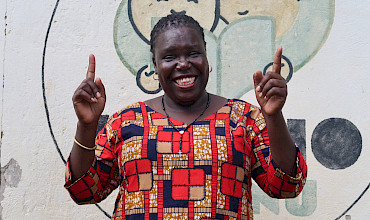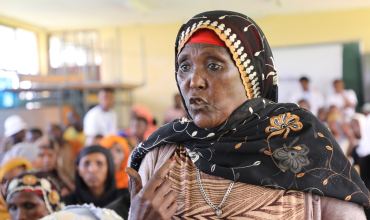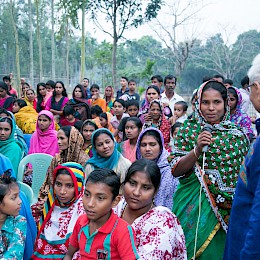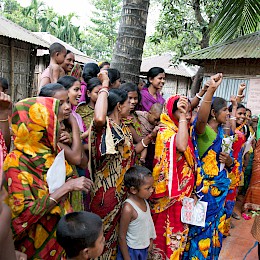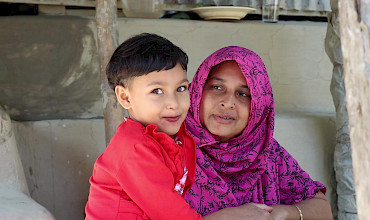
Mamou, a housewife turned entrepreneur, helps improve the nutritional situation in her community!
Mali's economy relies predominantly on the primary sector, encompassing agriculture, livestock, fishing, water and forestry. This sector holds significant importance due to Mali's enormous potential and comparative advantages over other countries in the region.
Concerns about malnutrition persist in the region of Kayes and Bafoulabé, particularly affecting children under the age of five and women. Yet the two regions have a wealth of agricultural and market-gardening potential that could be utilised to save this vulnerable segment of the population.
As part of the Right2Grow Partnership, supported by the Dutch Ministry of Foreign Affairs, 24 women from groups in eight communes in the Kayes and Bafoulabé regions have been trained in food processing and preservation techniques, as well as technologies to promote nutrition.
One of the training sessions encouraged Mrs Mamou Soucko, a member of the Bafoulabé women's agricultural group, to take action. "A few months ago, we started cleaning the community health centers in Bafoulabé every day. The state of health of the patients, especially the children, affected us enormously. That's why, at the end of our training, I mobiliszed the women in my group to prepare enriched porridges and sell them at the health center (CSRéf). Every day, we sell porridge at 1,000 CFA francs a bag", she declared.
By carrying out nutritional demonstrations with members of citizen watch committees (CVC) and nutrition officers at the Bafoulabé reference health center (CSRéf) and community health centers (CSCOM), she increased her community’s knowledge about- and access to fortified porridges, with a strong focus on women and children under five years old.
Mamou also trains new groups in local product processing techniques. Processing is an adaptive method of preserving food to cope with the hunger gap and helps to improve nutritional security.
Through the training session organiszed by Action contre la Faim in collaboration with partner Stop Sahel, women from agricultural groups such as Mamou Soucko deepened their knowledge on the following points:
- The promotion and consumption of healthy, nutritious and varied local products;
- Management of an agri-food processing unit;
- Hygiene standards in agri-food processing;
- Women's contribution to improving the health, nutrition and well-being of women and their families.
During her interview, Mamou explained her community's satisfaction with this initiative: "Previously, patients were only entitled to one bowl of tea a day. But now, all the men and women buy porridge for themselves and their children. We used to sell it only to mothers, but now all patients take it and it ensurescovers better health."
Technologies and methods that foster inclusive development, such as the ones above, will lead to a more active role for women in rural economies, and encourage the promotion and consumption of local products.
Back to overview
